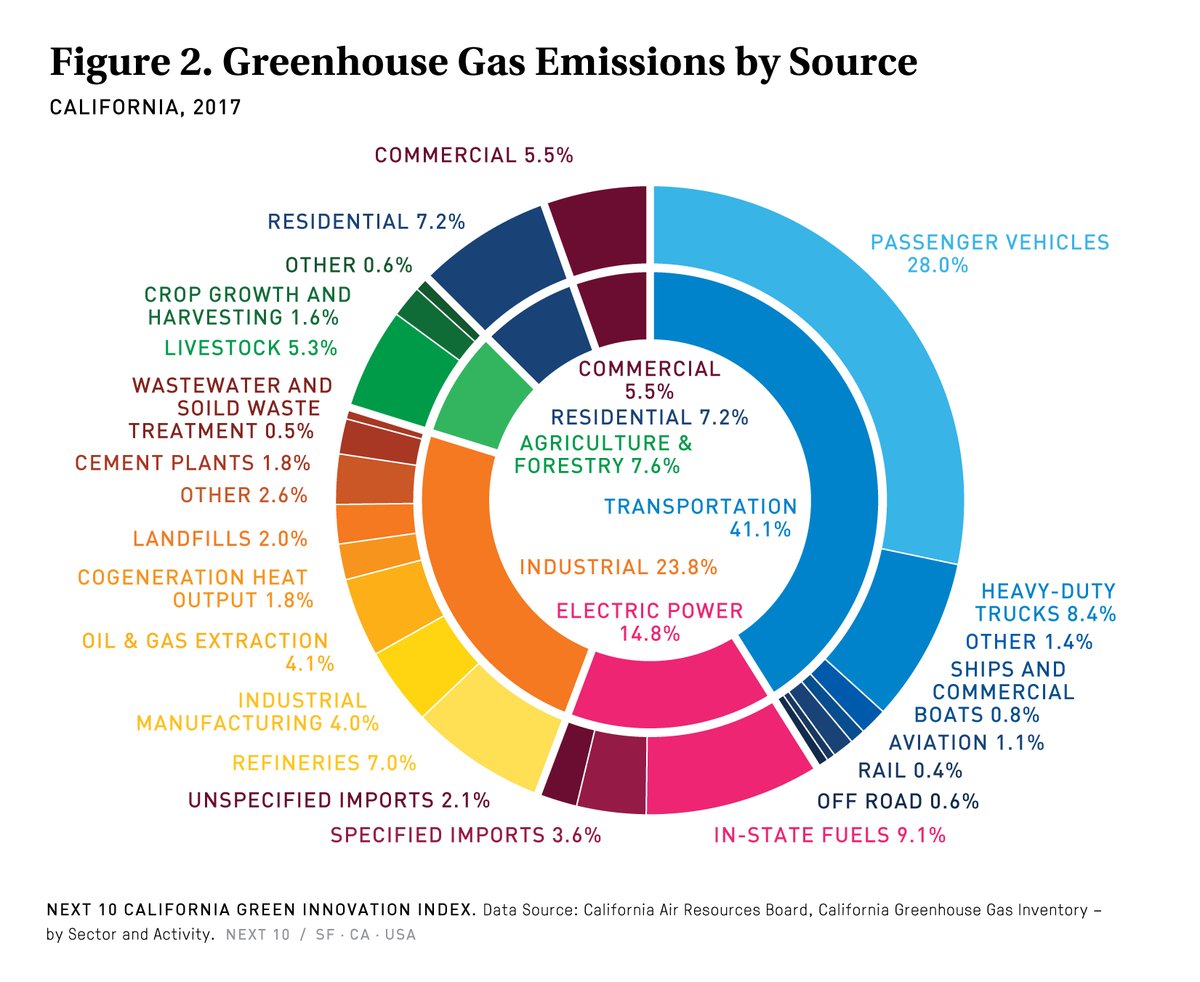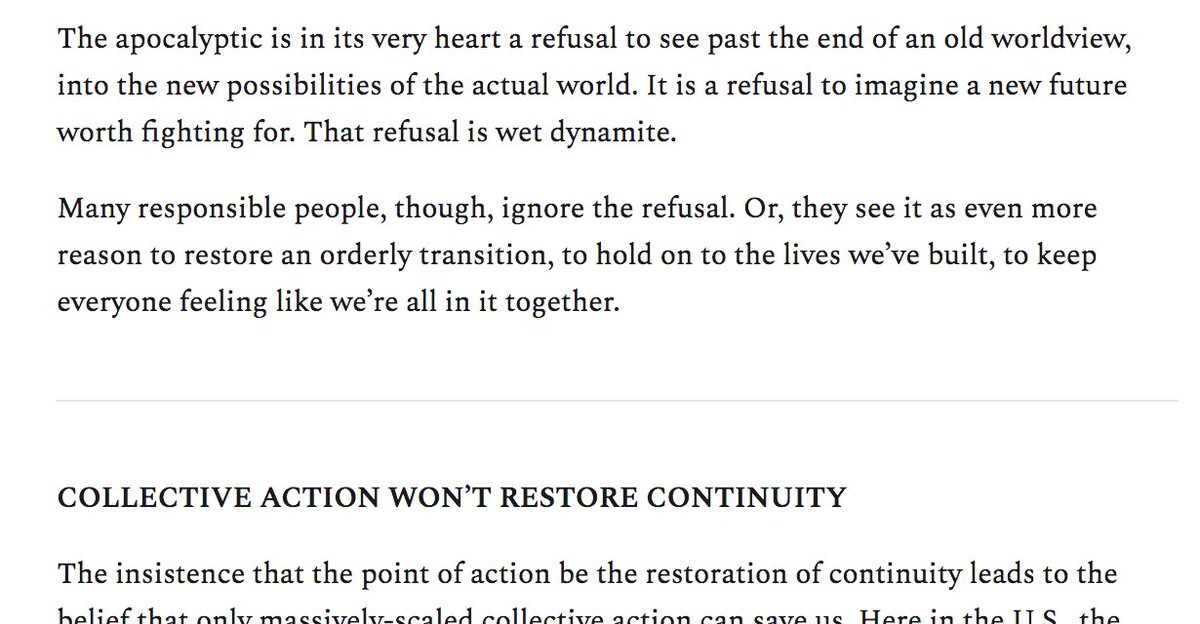
I think a lot about this, and about the misapplication of attention in much Californian climate politics.
It's the cars, which mostly means its the land use.
Then I think about our housing shortage.
That's the lack of homes, which also mostly means it's the land use.
It's the cars, which mostly means its the land use.
Then I think about our housing shortage.
That's the lack of homes, which also mostly means it's the land use.

Supposedly progressive governments, across a wide swathe of coastal CA, have planed cities that impoverish their non-land-owning residents, accelerate the planetary crisis and cheat the young.
By any standard of effectiveness — much less equity — it's an unmitigated debacle.
By any standard of effectiveness — much less equity — it's an unmitigated debacle.
That is, of course, unless your *only* standard of effectiveness is how effectively plans and policies enrich current landowners with windfall profits from rent-seeking behaviors.
Doing really well, there.
Doing really well, there.
There is no way to solve California's real problems without huge changes is what we build, where we build it, and how we spend public resources for the greatest benefit to all.
Rapid change has to be the core goal.
See also:
Rapid change has to be the core goal.
See also:
https://twitter.com/AlexSteffen/status/1487155090318192641
All for clean energy, electrification, cheap storage, efficient appliances, sustainable farming/diets, low-carbon and non-toxic materials, reducing consumption, closing resource loops, flying less, etc.
But we can't actually tackle our crises unless we build better cities, fast.
But we can't actually tackle our crises unless we build better cities, fast.
The single most effective kind of climate advocacy that most people can engage in is climate YIMBYism — pressuring your local government to zone for more housing, approve housing faster, reduce "impact fees", cut parking, fund transit and design streets for people.
You will invariably meet the "building things causes emissions, so we need to stop building in this city to fight climate change" nonsense.
Here's why it's nonsense:
thenearlynow.com/ecovillage-vs-…
Here's why it's nonsense:
thenearlynow.com/ecovillage-vs-…
I gave a talk about all this back in 2016.
I also wrote a book that touches on some of these questions about a decade ago... it only costs .99 now, if you're interested in checking it out.
amazon.com/Carbon-Zero-Im…
amazon.com/Carbon-Zero-Im…
• • •
Missing some Tweet in this thread? You can try to
force a refresh








